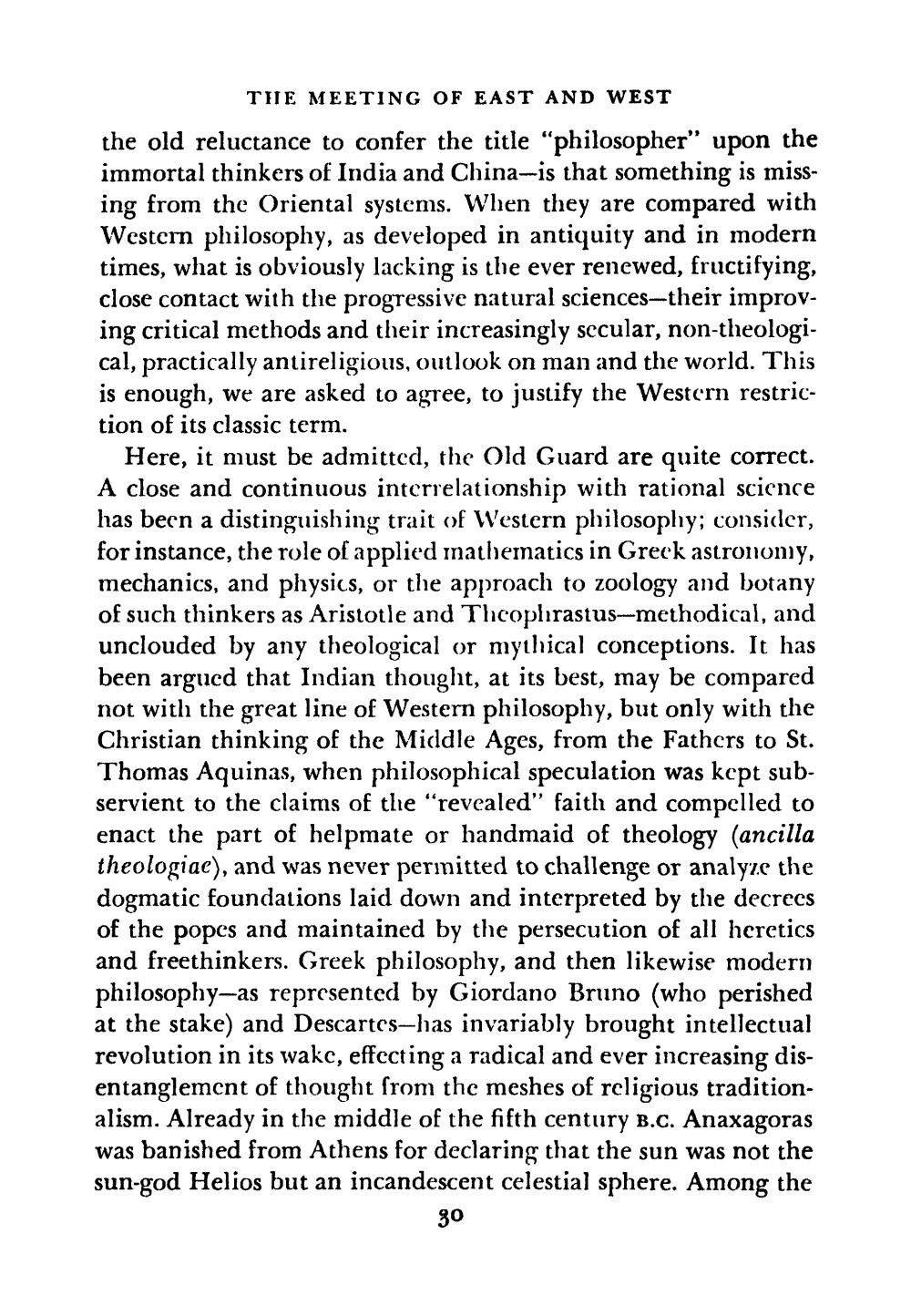________________
THE MEETING OF EAST AND WEST
the old reluctance to confer the title "philosopher" upon the immortal thinkers of India and China-is that something is missing from the Oriental systems. When they are compared with Western philosophy, as developed in antiquity and in modern times, what is obviously lacking is the ever renewed, fructifying, close contact with the progressive natural sciences-their improving critical methods and their increasingly secular, non-theological, practically antireligious, outlook on man and the world. This is enough, we are asked to agree, to justify the Western restriction of its classic term.
Here, it must be admitted, the Old Guard are quite correct. A close and continuous interrelationship with rational science has been a distinguishing trait of Western philosophy; consider, for instance, the role of applied mathematics in Greck astronony, mechanics, and physics, or the approach to zoology and botany of such thinkers as Aristotle and Thcophrastus-methodical, and unclouded by any theological or mythical conceptions. It has been argued that Indian thought, at its best, may be compared not with the great line of Western philosophy, but only with the Christian thinking of the Middle Ages, from the Fathers to St. Thomas Aquinas, when philosophical speculation was kept subservient to the claims of the "revealed" faith and compelled to enact the part of helpmate or handmaid of theology (ancilla theologiac), and was never perinitted to challenge or analyze the dogmatic foundations laid down and interpreted by the decrecs of the popes and maintained by the persecution of all heretics and freethinkers. Greek philosophy, and then likewise modern philosophy-as represented by Giordano Bruno (who perished at the stake) and Descartes-has invariably brought intellectual revolution in its wake, effecting a radical and ever increasing disentanglement of thought from the meshes of religious traditionalism. Already in the middle of the fifth century B.C. Anaxagoras was banished from Athens for declaring that the sun was not the sun-god Helios but an incandescent celestial sphere. Among the
30




